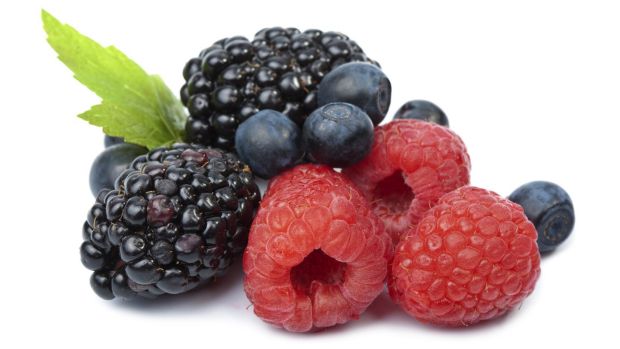
Products such as berries are known as “high care” foods because they are usually not cooked before they’re eaten. Photo: Getty Images
A look around your local supermarket is enough to show that fresh fruits such as berries and strawberries are a vital part of the commercial success of food retailing businesses. Wall-size photos of giant strawberries and abundant piles of shiny fruits are on display to capture the food dollars of customers motivated by the pursuit of a healthy lifestyle. These customers are perfectly entitled to assume that what they are buying is free of risks from dangerous viruses and bacteria.
But because fruits such as berries are usually not cooked before being eaten, food products like the Nanna brand of frozen mixed-berries, which have been withdrawn because of a potential links to hepatitis A virus contamination, are what is called as “high-care” foods; they need high care by the food industry and special attention from farm-to-fork because there is no process step to reduce dangerous microbe contamination that can easily occur in the production process.
In the case of fresh produce imports, credible independent (third-party) auditing of offshore farm and factory management to verify management practices in the exporting country are a priority.
Contamination of farm irrigation water with sewage or animal manure, or lack of adequate hygiene in the packing shed, are typical causes of a situation of this sort. The hepatitis virus could have been present in sewage or could have been transmitted by a sick employee in the packing shed.
The outbreak linked to Australian food companies that imported hepatitis-contaminated frozen berries from China illustrates that attention to the high care of imported foods right through the food chain is a significant challenge to food company management and the food regulatory agencies.
Legal protection for Australian consumers is provided by the requirement under the Australian Food Standards Code for food businesses to take all practical measures needed to ensure that they accept only food that is protected against likely contamination ( infectious germs such as the hepatitis virus are recognised contaminants in this law).
Practical measures for food retailers such as supermarkets would include supplier contracts that require supplier commitments to safe food production, appropriate proactive hygiene arrangements and good agricultural practices. Such practices would include measures to prevent the contamination of irrigation water and product wash water with sewage, which is a likely cause of the hepatitis virus.
Another essential practical measure would be regular independent auditing of growers and packers.
In an effort to resolve the current situation, there have been calls for better safety regulation of fresh produce imports such as frozen berries, and for more intensive microbiological testing of food imports.
These don’t go to the nub of the matter. It is a mistake to think more testing is the solution.
The results of experiences with food outbreaks have shown that microbial testing of food products is an ineffective food protection measure by itself, because food can easily test negative and still be dangerous. This is because germ contamination might not be uniformly distributed in the food and miss being caught in the test, so testing methods can be inefficient.
A better approach is a collaborative government and industry effort to improve horticultural and fresh produce safety management and ensure attention to good agricultural and hygiene practices.
In Australia this is being pursued at the Fresh Produce Safety Centre at the University of Sydney. Regular testing by companies and regulators fits with this approach.
The implementation of management and auditing practices in a huge and rapidly developing country such as China, which supplied the current contaminated berries, is a far bigger challenge than assurance of food safety in Australia.
For fresh produce imports, credible independent (third-party) auditing of offshore farm and factory management to verify management practices in the exporting country are a priority.
David Tribe is a senior lecturer in food safety and food microbiology at the University of Melbourne.
